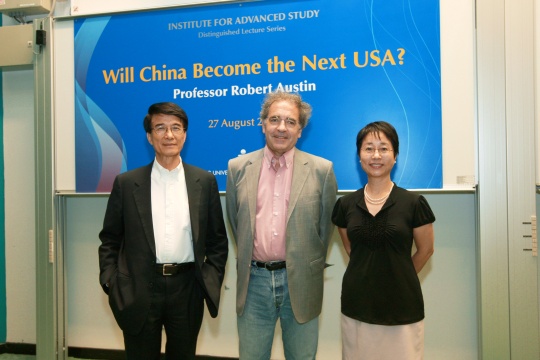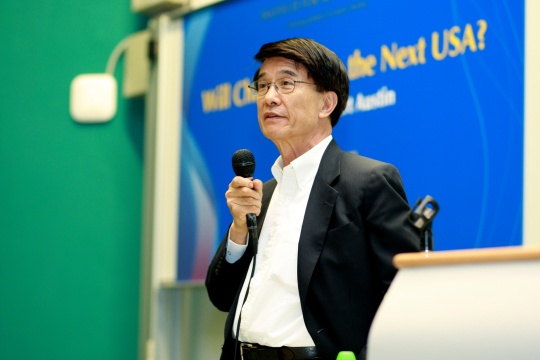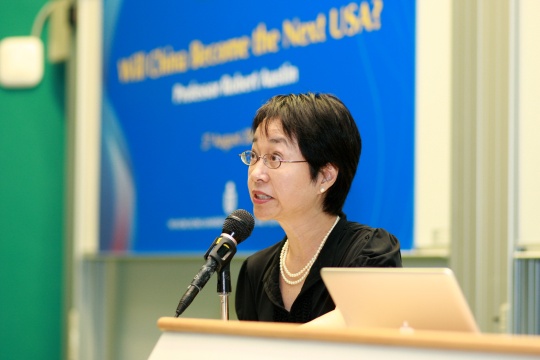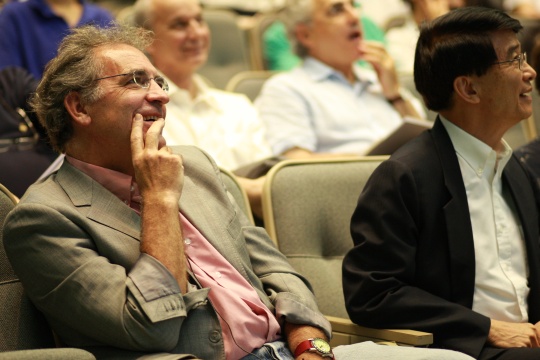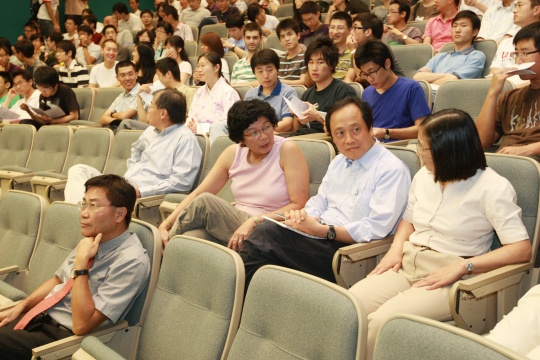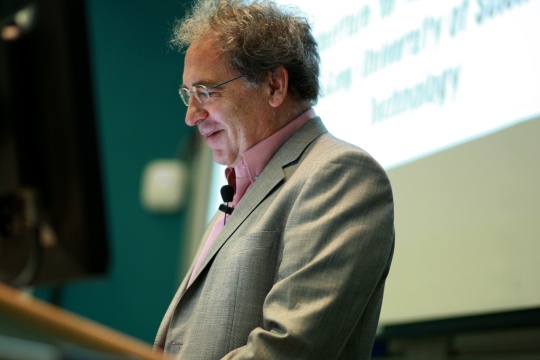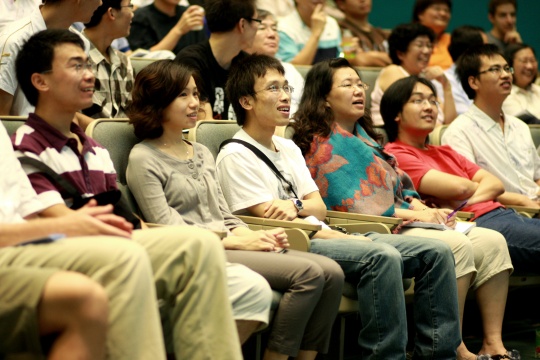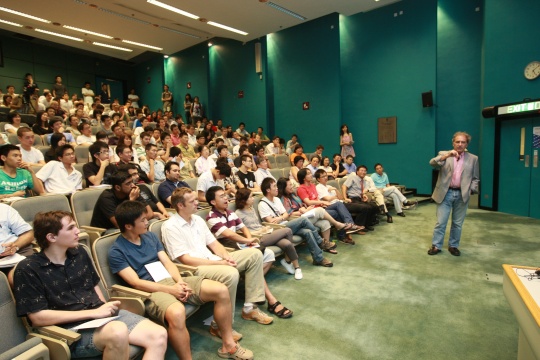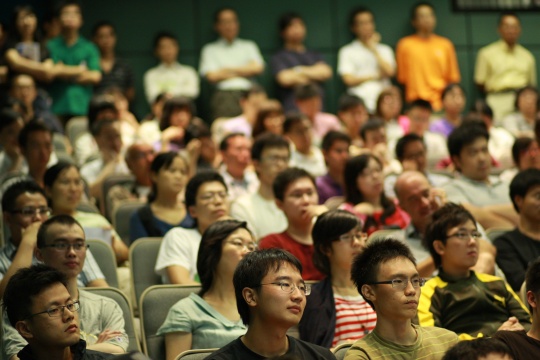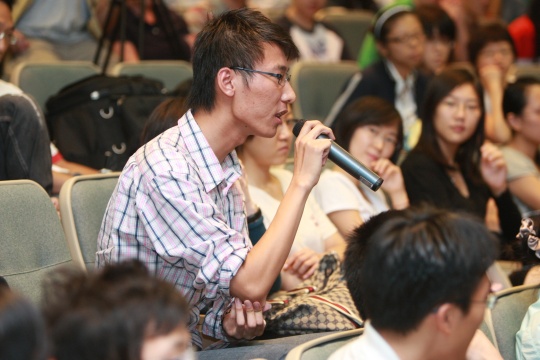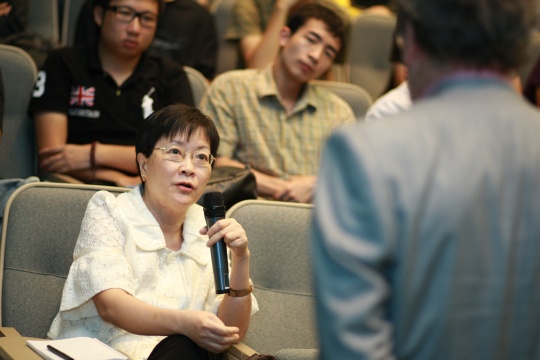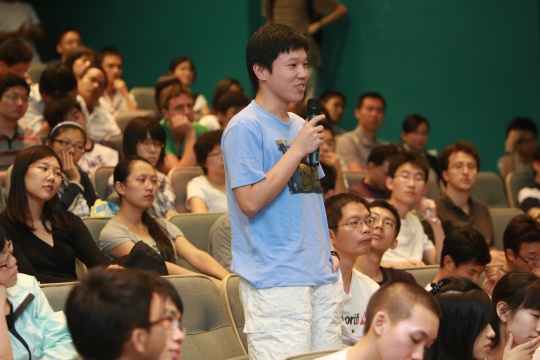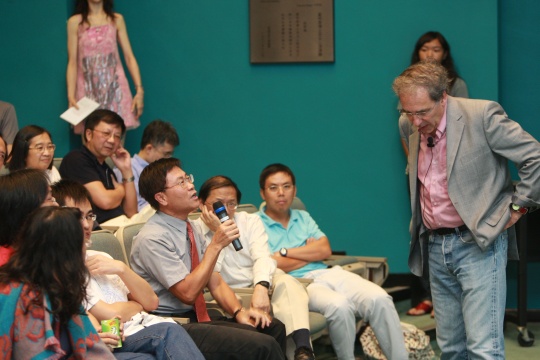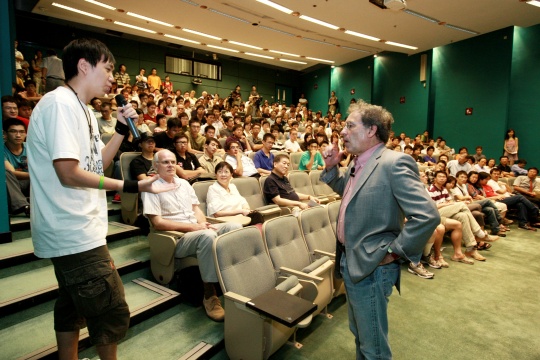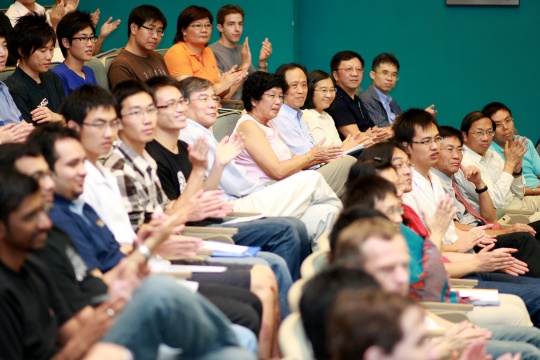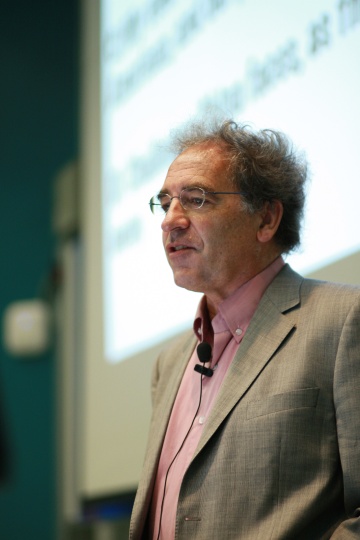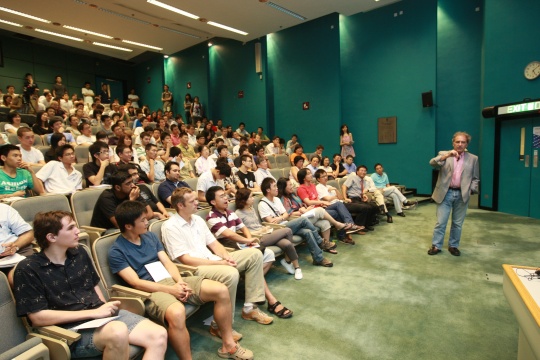Will China Become the Next USA
Abstract
Recently Time Magazine had on its cover a panda bear trying to re-inflate a limp world balloon, with the caption: Can China Save the World? I’ll talk about my experiences as an American in Hong Kong this past year and try to compare the road that the USA has gone down with the directions China seems to be traveling along. In addition to some general cultural observations, the speaker will try to make some guesses about where Hong Kong and by inference China is going scientifically in comparison to the West, and the nature of the changing interactions between the East and the West as China continues its explosive development.
About the Speaker
Prof. Robert Austin received his PhD degree in Physics from the University of Illinois at Urbana-Champaign in 1976, under the supervision of Prof Hans Frauenfelder. His PhD thesis was about the experimental temperature-dependent dynamics of proteins and was the first presentation of the free energy landscapes of proteins. He spent 3 years as Max Planck Stipendiat at the Max Planck Institute for Biophysical Chemistry in Goettingen, Germany. He has taught at Princeton University since 1979 and is currently Professor of Physics there.
Prof. Austin’s research interests are in experimental biological physics over a wide range of areas: Fundamentals of Protein Dynamics: Energy Landscapes and Quantum Mechanics of Proteins, DNA Dynamics: sequence influences, Nanotechnology: DNA Dynamics, Nanotechnology: Micro/nanofluidics and recently Ecology and Evolution Dynamics. He has been an Editor for Physical Review Letters, has served twice as a Councilor for the American Physical Society, has been Chair of the Division of Biological Physics, American Physical Society and the U.S. Liaison Committee for the International Union of Pure and Applied Physics. He is a Fellow of the American Physical Society, a Fellow of the American Association for the Advancement of Science, a Member of the National Academy of Sciences, a Fellow of the American Association of Arts and Sciences, and won the Lilienfeld Prize, American Physical Society.

